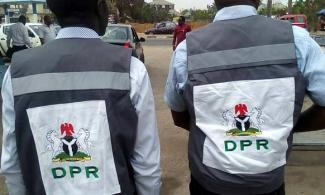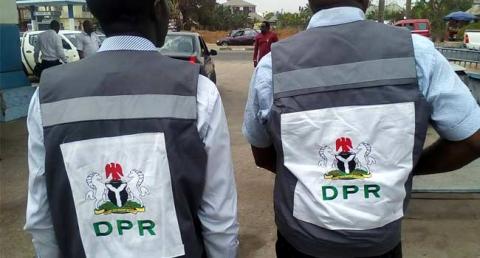
In the document sent on June 16, the DPR was reminded of the mistakes it made in previous auctions and asked to modify the latest rules to make the bidding process more transparent.
The Department of Petroleum Resources has refused to acknowledge a letter it received from a coalition of civil society and media organisations asking it to reform the guidelines it released for the recently announced bidding rounds for marginal oil fields.
In the document sent on June 16, the DPR was reminded of the mistakes it made in previous auctions and asked to modify the latest rules to make the bidding process more transparent.
National Coordinator, Publish What You Pay, Peter Egbule, said the DPR had ignored every attempt at engagement. He said the organisation’s action showed a disregard for the opinion of Nigerians.
“It shows a disregard for what Nigerians think. If a mere letter is not acknowledged, one is in doubt as to the extent they would go to abide by global best practices,” he said.

In the letter addressed to the DPR boss, Sarki Auwalu, the CSO and media alliance made suggestions to the pre-bidding, the auction process and the post-bidding phase of the ongoing sale.
With the publication of guidelines at the beginning of June, bidders had six months to start expressing their intentions.
The coalition, however, asked the DPR to consider issuing a rejoinder that sets the goal of each bid round, gives the interested investors access to quality data on the fields to be sold and determine social impact targets that will guide the exploration activities of the oil firms who win the auction.
The alliance counselled the DPR not to go all out to sell the marginal fields but have a clear objective for each sale. They reminded the agency that investors could get fatigued and many of the fields would stay fallow – one of the outcomes of the last bid round held during the Obasanjo era.
The coalition also reminded the DPR not to frustrate the right indigenous capital out of the process by denying them timely access to the right data or forcing them to pay more for information that will help potential buyers put in firm bids.
To avoid the antecedence of companies and government officials hoarding data or not having the right information in the National Data Repository, the Coalition asked the DPR to consider allowing a private organisation to manage the database.
When bidding began, the alliance, among a host of other requests, advised the DPR to dedicate a website to the entire process of the bid from start to finish. They noted that this level of transparency would force the agency to abide by all its published guidelines and prevent a scenario where entities that sat out the auction are awarded the same oil licenses on offer during the bid.
They also asked the agency to ensure the process yields investors who can actually develop the fields they are allotted. The coalition noted that unworthy bidders could be priced out by setting a signature bonus – money paid when an entity is awarded an oil block, that is determined by the worth of the field being sold and not the flat rate of $2m in place at present.
The DPR was also asked to allow CSOs, the media and the Nigeria Extractive Industry Transparency Initiative to monitor the entire process.
Although the bid was couched as an effort to raise funds for a cash-strapped Federal Government, the DPR has been unable to claim $2bn from past marginal field sales. The alliance also asked the organisation to publish a payment plan that would ensure all signature bonuses from the ongoing auction are paid as and when due.
Egbule said, “We’ll keep crying out. We have also tried to reach them via phone, no response yet. We are all Nigerians and we want the interest of this country.”
Experts feel the federal government rushed on with the bid, without making any adjustments, to the bidding process despite several postponements.
If one bid is received for each of the 57 fields on offer, the federal government would earn N2.36bn in non-refundable fees. Each bidder is expected to pay N5m and $115,000 in nominal payments for the expression of interest.